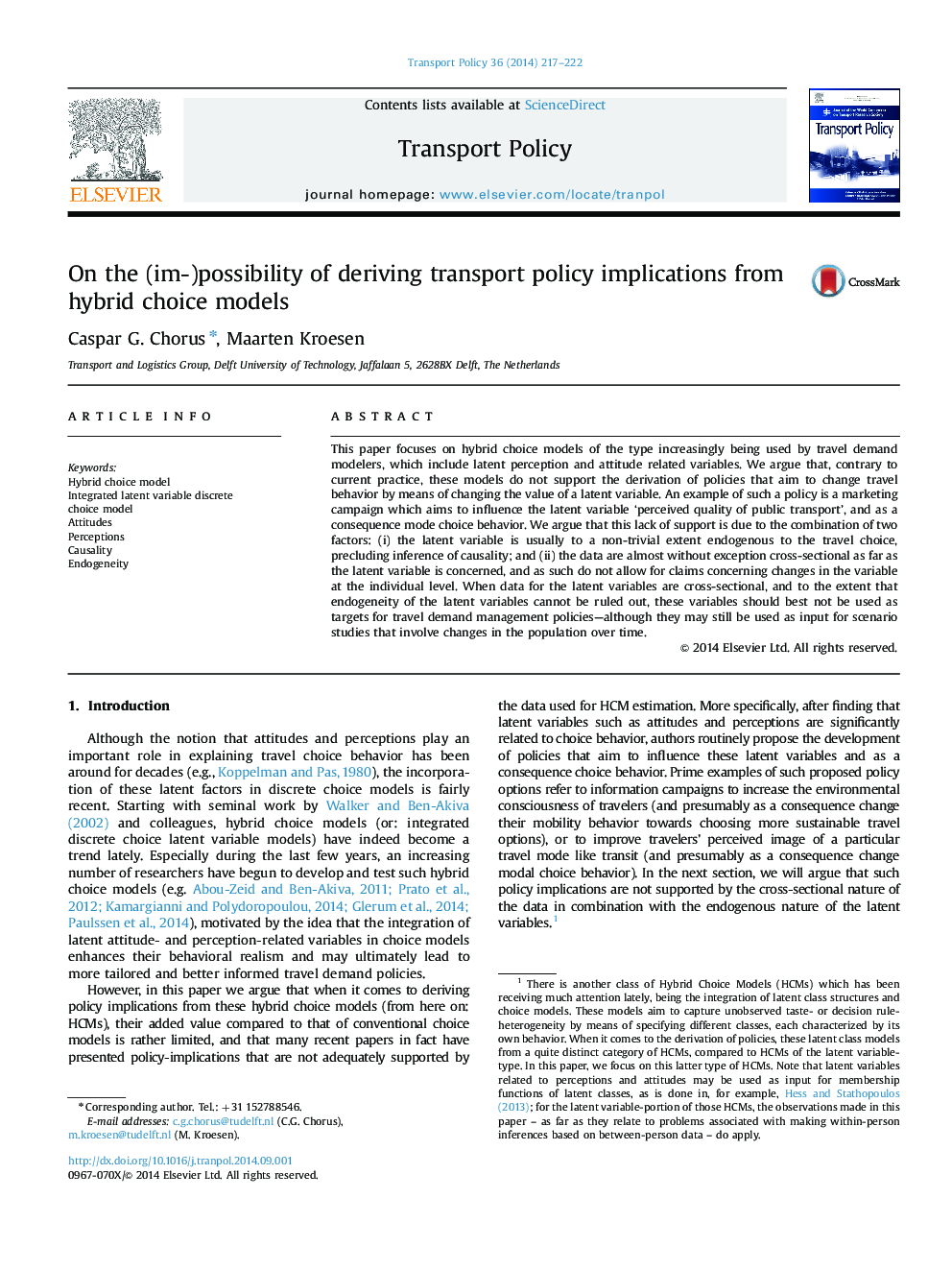| Article ID | Journal | Published Year | Pages | File Type |
|---|---|---|---|---|
| 7497827 | Transport Policy | 2014 | 6 Pages |
Abstract
This paper focuses on hybrid choice models of the type increasingly being used by travel demand modelers, which include latent perception and attitude related variables. We argue that, contrary to current practice, these models do not support the derivation of policies that aim to change travel behavior by means of changing the value of a latent variable. An example of such a policy is a marketing campaign which aims to influence the latent variable 'perceived quality of public transport', and as a consequence mode choice behavior. We argue that this lack of support is due to the combination of two factors: (i) the latent variable is usually to a non-trivial extent endogenous to the travel choice, precluding inference of causality; and (ii) the data are almost without exception cross-sectional as far as the latent variable is concerned, and as such do not allow for claims concerning changes in the variable at the individual level. When data for the latent variables are cross-sectional, and to the extent that endogeneity of the latent variables cannot be ruled out, these variables should best not be used as targets for travel demand management policies-although they may still be used as input for scenario studies that involve changes in the population over time.
Related Topics
Social Sciences and Humanities
Social Sciences
Geography, Planning and Development
Authors
Caspar G. Chorus, Maarten Kroesen,
